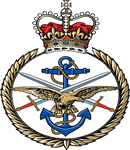Commemorated: | |||
| 1. Memorial: | Helles Memorial | ||
| 2. Book: | The (1921) Masonic Roll of Honour 1914-1918 | Pg.126 | |
| 3. Memorial: | The (1940) Scroll - WW1 Roll of Honour | 1C GQS | |
Awards & Titles: | |||
Service Life:
Campaigns:
- The First World War 1914-1918, World-wide.
| Unit / Ship / Est.: 4th Battalion Welsh Regiment |
| Action : Gallipoli |
The Gallipoli Campaign was fought on the Gallipoli peninsula 25th April 1915 to 9th January 1916. in a failed attempt to defeat Turkey by seizing the Dardanelles and capturing Istanbul. Ill-conceived and planned, the initial effort by the Royal Navy failed to force passage through the Dardanelles by sea power alone. It was then realised that a land force was needed to support the project by suppressing the Turkish mobile artillery batteries. By the time all was ready the Turks were well aware and well prepared. Despite amazing heroics on the day of the landings only minor beachheads were achieved and over the succeeding 8 months little progress was made. Eventually the beachheads were evacuated in a series of successful ruses.
Despite Gallipoli rightly becoming a national source of pride to Australians and New Zealanders, far more British casualties were sustained, and these days the substantial French contribution is almost forgotten.
Detail :
ALFRED HEYWOOD HOWARD J.P. Captain Alfred Howard was killed in action at Suvla Bay 10 August 1915, age 45 whilst serving with 4th Battalion Welsh Regiment. Alfred Howard was manager of the Haverfordwest branch of The London NS Midland City Bank as the outbreak of war, a Justice of the Peace and Captain of the local Territorial Army Battalion of the Welsh Regiment. By 2 September 1914, one month after the outbreak of the war, Captain Howard and every man in the 4th Welsh battalion, stationed at Haverfordwest, had volunteered for the fighting line. On 2 December 1914 the Western Telegraph gave a long account of speeches made by the Mayor and Captain Howard as the 4th battalion made ready to leave Haverfordwest. The Council presented each soldier with a leather case containing a hair brush and comb. The Telegraph of 1 September 1915 includes details received in letters from the local men of Captain Howard’s death…the "first in our battalion to get knocked over….shot the day after we landed." It seems that his body was interred on Chocolate Hill, the scene of much desperate fighting. The Telegraph wrote; "Thus closes the career of a gallant officer, one who was idolised by his men and who has been repeatedly referred to by the Harfat boys of his company as "Poor Captain Howard," "Dear Captain Howard," and similar expressions of affectionate regard and esteem.” The Western Telegraph continued that Captain Howard's widow and little daughter have now removed to Cardiff, where, we understand, they will reside permanently. The 1901 census of Penarth listed 31 year old Lancashire-born Alfred Howard, a bank clerk, living with his parents, Joseph Howard, retired prison governor, and Fanny. Source;
Masonic :
| Type | Lodge Name and No. | Province/District : |
|---|---|---|
| Mother : | Glamorgan No. 36 E.C. | South Wales |
| Joined : | Kensington No. 3667 E.C. | West Wales |
| Joined : | Cambrian No. 464 E.C. | West Wales |
Initiated | Passed | Raised |
13th March 1896 | 10th April 1896 | 8th May 1898 |
He joined Cambrian Lodge No. 464 on 15th March 1905, and he was also a petitioning and founding member of KENSINGTON LODGE No 3667 having joined 13th April 1913.Past Master and Past Provincial Grand Standard Bearer.
Source :
The project globally acknowledges the following as sources of information for research across the whole database:
- The Commonwealth War Graves Commission
- The (UK) National Archives
- Ancestry.co.uk - Genealogy, Family Trees & Family History online
- ugle.org.uk - The records of the United Grand Lodge of England including the Library and Museum of Freemasonry
Additional Source:
- Founder Researchers : Paul Masters & Mike McCarthy
- Researcher : Bruce Littley

